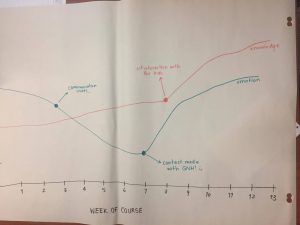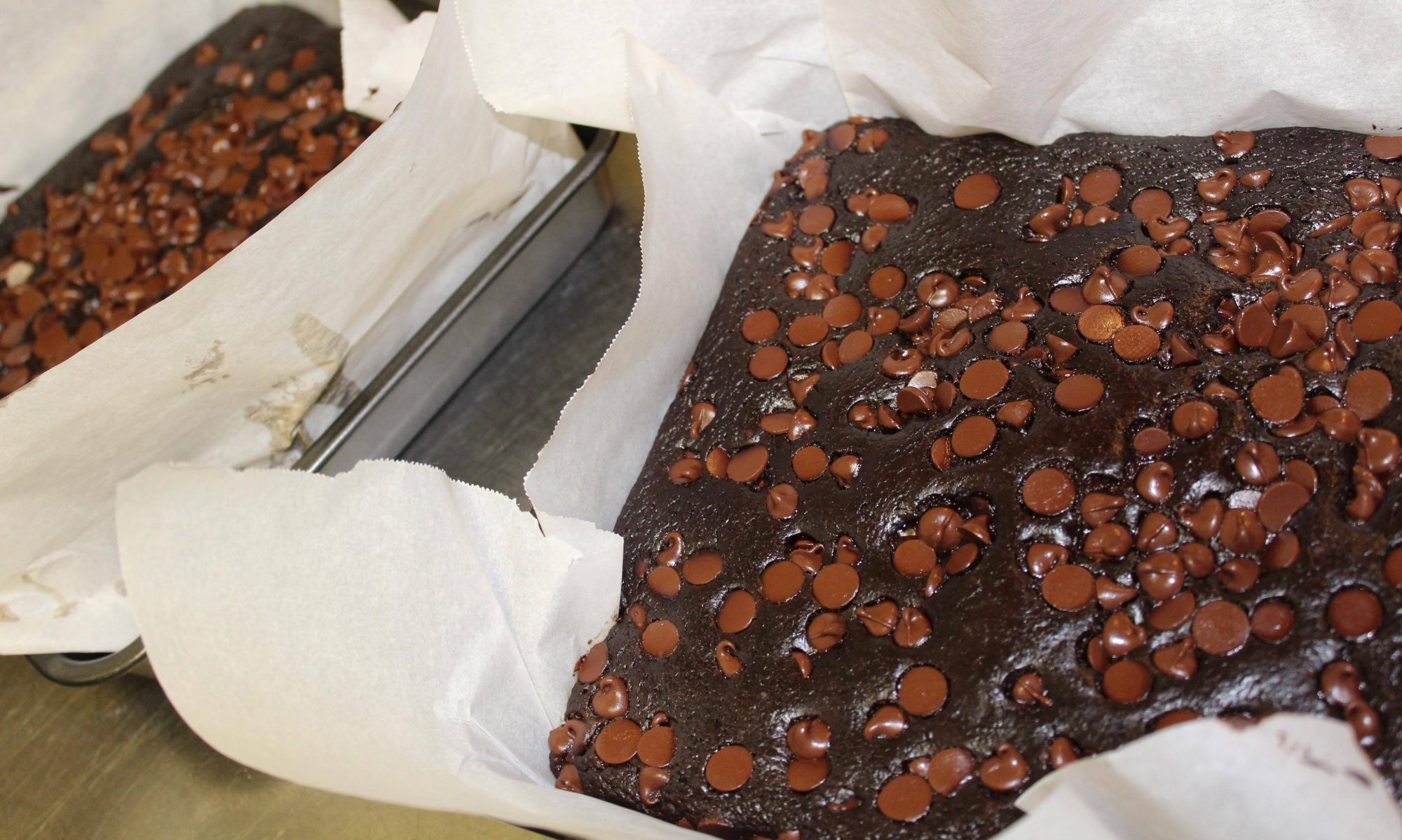Achievements
During this week, we successfully completed the research for the significant nutrient needs of our targeted age group (5-10 years old). We also explored various resources for appropriate healthy dessert recipes and, after thorough discussion, agreed on making healthy chocolate chip avocado brownies! These brownies are iron-rich, packed with calcium and healthy fats and all essential nutrients to enable proper growth and development in children.
We visited the Out of School Care (OSC) program at GNH to get a better understanding of the logistics of our project and to meet the coordinator Isabel as well as the kids. We had the chance to do a quick introduction activity with the children which tested their basic knowledge of the four food groups. This gave us the opportunity to interact with them and to familiarize ourselves with the setting and the experience of executing a food literacy workshop.
Weekly Objectives
Next on our agenda, we will be planning the details of our workshop that will be executed on November 8th, 2017. This includes an hour long workshop so we will need a clear, organized program including roles and a flexible yet planned timetable. Since we have decided on a suitable recipe, we will be ensuring all ingredients and cooking materials/utensils are purchased and gathered. Additionally, due to the large age range of the children in the OSC program, we have noted some variation in skill level and attention span. Therefore, we will need to strategically format our workshop to execute it in the most efficient way. We also hope to collect feedback during the workshop from multiple resources including the coordinator Isabel, the children participating as well as our own observations and reflections.
Moment of Significant Change
The most prominent aspect that stood out in our individual graphs were the similarities we shared in our perspective and our evaluation of changes in both emotions as well as knowledge and skills. Instead of creating separate trend lines for each group member, we agreed on a single trend line for each of the “emotions” and “knowledge and skills”. Having the whole group on almost the same page is a positive element as it creates unity and facilitates efficient teamwork.

One of the moments of significant change was our visit to GNH last week and completing the intro activity with the children. Some of us had previous experience in executing food literacy workshops with a group of younger kids, so going into the workshop, we all felt fairly confident in our ability to lead the children. During the activity at GNH, we started to have some difficulties. The wide variation of attention spans, knowledge and interest in the activity we were conducting, challenged us as a group. To ensure smooth transition and continuation, we supported one another in order to capture the children’s attention and be able to do the activity in an interactive and interesting way.
This obstacle we encountered touches on the concept of asset-based community development (ABCD). It was a moment of significant change because we quickly realized after interacting with the children that our project needs to shift more towards the children’s desires and expectations of us as leaders. It is important that we remember to focus on distributing the leadership amongst the children during our workshop, to actively engage with them, and to keep in mind that we are visiting to serve the GNH community, all of which is what ABCD entails. Was what we had planned previously not client-centered? No, not exactly. Our experience this week at GNH puts into perspective the significance of ABCD. As we knew that our project would be designed for young children, we immediately assumed that more scheduling and leadership (specifically from us) would be required to execute the workshop successfully. This led us to underestimate the impact of the children’s desires and interests about food and cooking. Children are often unpredictable, and obviously from our visit to GNH, it’s hard to get their attention sometimes! Yet, it doesn’t mean that they are uninterested in it; we just need to cater to them.
These uncertainties with the kids can also be related to our discussions in our LFS 350 lecture. As we realized that certain aspects of our project did not quite coincide with the children at GNH, it is crucial that we readjust in a meaningful way. Although we can control many components of our workshop, there are also many components that are out of our control. This includes the points we mentioned before (the children’s attention spans, interest and knowledge level) It is up to us to be flexible leaders and be able to adapt to their responses. After facing this uncertainty in the pre-workshop activity, we will use this knowledge to improve our upcoming cooking workshop. We are confident that we will be able to draw from our diverse skill sets regarding interactions with children to successfully engage the children!
The Graceful Dismount
In order to lead a successful project, we have maintained frequent contact with our community partner, are flexible with adjusting ideas and plans when needed and are working to the group’s strengths, assigning roles which are logical and effective. To address the challenges with the children’s attention spans, we will be separating the children into groupings based on their age (ages 5-6, ages 7-8, and ages 9-10). We believe that this will be an effective strategy to minimize the chaos that can be created if the children are in mixed-aged groups. Additionally, we will be ensuring that we approach the workshop with an open mind and the ability to adapt to any unforeseen circumstances. Our pilot visit to GNH gave us additional insight into the mindset of children at that age. Although part of our project is focused on nutrition and healthy alternatives, incorporating something as simple as chocolate chips (as per requests by the kids!) can raise their interest in the recipe we will be cooking. Therefore, it will be easier to capture their attention. We also used this opportunity to learn about the equipment and possible ingredients available, which helped us decide on our recipe. This pre-workshop meetup informed us that we needed to choose a recipe that is engaging, fun, and interactive, so the kids will be interested and pay attention, but also simple enough that even the youngest kids will be able to participate. As a group we are working hard to plan a successful, fun, educational and delicious workshop for the kids of GNH.
